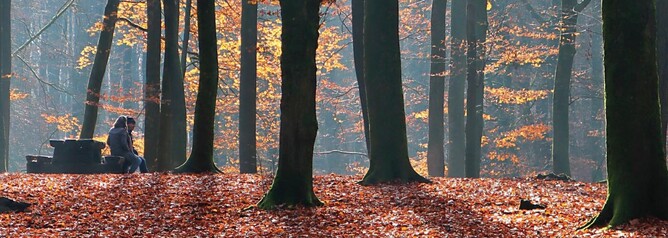I read recently that the one constant in life is change! Life, no matter where we live, is in constant change, often leaving us feeling overwhelmed. However, for those of us who serve in mission there are added complexities related to change. We change, our passport countries change, and our adopted countries change, to say nothing of the changing ministry context. Each country, each culture presents us with a variety of changes that we must adapt to in order not only to survive but hopefully thrive. For someone like myself who likes security and stability, my life since entering into mission has been anything but these things — and yet I believe life with God is an adventure worth embracing.
Late last year I organised a day of training for refugee workers on the topic of developing resilience both in oneself and among the refugees we serve. One tool the workshop presenter provided was really helpful in dealing with the concept of change. He presented us with the sketch of a palm tree with its widespread root network, its trunk, and also its leaf canopy. The palm tree can withstand strong storms (in our case the changes we face) because it has a well-developed root system that anchors it in place. These he likened to our values that hold us rooted and strong. The trunk is flexible and can sway in the winds and storms without snapping. These he suggested were the skills and ways of thinking we develop that allow for adaptability instead of breaking in the face of change. The final image was the leafy canopy where the palm tree is able to shed fronds so that all are not lost, but in doing so create space for new growth. These he likened to those behaviours, habits and ways of thinking that we need to ‘lose’ in order to weather the changes we experience. Yet with the loss comes the possibility for new growth.
For me, this captures so well the experience not only refugees face but also the change that I, and many others who serve in mission, face. There are values which anchor us and hold us through the challenge of change. There are attitudes and skills we develop that help us flex and adapt. Then there are things we need to let go of, but which create space for new growth.
I want to explore a couple of aspects of change I that have faced as I have learned to live and serve in another culture.
One of the changes I have faced is the changing nature of what church is and can be. Often as missionaries our choices are limited due to language and in some countries a lack of churches. Through attending various styles of churches, I have learned much about what is core to my faith and worship, what is adaptable, and I have also learned to let go of certain non-essentials. Over the years we have sung in different ways, participated in the Lord’s Supper in different styles, experienced different leadership and pastoral structures, different preaching and teaching styles, different approaches to small groups, and many other differences. And all this is to say nothing of some denominational differences, for example those related to the baptism of adults or infants. All these changes have meant identifying those core values of what faith is, holding onto the centrality of the life, death and resurrection of Jesus and the need for reconciliation with God, and the unity we share as brothers and sisters in Christ. When it comes to styles of ‘doing church’ I have learned to be adaptable, realising the form of worship can be different. When the heart is in the right place it is more about Who we worship than how we do it. I have learned that sometimes I get stuck in ways of doing things through habit. I have changed by being forced to experience something different to what I would normally choose, and finding that these different ways of worship, or doing church, allow me to experience freshness or newness in my relationship with God. In doing so I have learned much about the wider body of Christ, from their traditions and ways of worship and ways of being and doing church.
Living and serving in another culture changes you as a person. I am certainly not the same person as I was a couple of years ago let alone over 19 years ago when I first left Australia with my family. I have learned skills to engage with people of diverse linguistic and cultural backgrounds, to communicate with people in ways that don’t require language. I have learned to appreciate the positives in other cultures, a new appreciation for my own country, while being confronted with the blind spots in my own culture. I have learned to ask questions, to observe and to reflect on ways of behaviour and ways of thinking that are different to my own without judgement, and I see value in many of those ways. I have become more open to the differences between cultures and peoples and taking on some of those ways. For example, the Dutch are in general much more direct than most Australians, and certainly than I am. Yet when I am here with Dutch I, too, am now more direct than I used to be — though still not as direct as many Dutch people. I have learned to be more resourceful and independent, simply because I don’t always have the local knowledge, language or network to get things done. Now, of course, some of these changes come with age and maturity. However, living and serving cross-culturally forces the pace of these changes or brings new things out in your personality that living in your own language or culture does not. I find I speak more slowly and use less jargon-filled English than I used to as I now usually speak English with people whose mother tongue is not English.
One of the big personal changes is learning that I was not as resilient as I thought I was. One of the big changes you experience in living in another culture is that all the regular things that help regulate and support your life are removed once you leave Australia — family, friends, language, health system, roles, income, recreation, housing, and more. Added to these losses is the challenge of starting from scratch in the new location with all of those factors which challenge your sense of self. While we prepared well for these things, nothing prepared us for the actual long-term impact of living in challenging places — we just had to live it. What I didn’t realise was that the combination of my personality and the challenging living and ministry conditions in Ukraine was not a good one for my mental or physical health. Some personalities thrive in those situations while others find it more difficult. I thought I was one of those that thrived — it turned out not to be the case. I was unaware that living in a small apartment in an old Soviet-era apartment block, in a polluted city with significant poverty outside our door, slowly ate away at my resilience until it was too late. This combined with the pressures of ministry, with often too much to do and few ways to have fun and relax. Cue: depression and anxiety. One of the changes I have made has been putting in place strategies for a healthier and more sustainable life and ministry rhythm. I learned that in order to serve long term and cope with change I needed to change, to be more proactive in looking after myself and my family. Christian workers are not invincible. The things I have learned I have been able to apply to my own role in training and caring for other missionaries — topics such as stress, burnout, healthy rhythms, and dealing with suffering are now integral to our way of preparing people for mission. Over these last years I have seen that the mission world has changed with better preparation and on-field care. There is less of a stigma attached to some mental health issues such as depression and anxiety and that has made it easier for people to acknowledge they need help.
A further significant change is the world of teams and mission itself. Over the years, so many things have changed for us on the mission side of ministry. First there is the constant change in the team with whom I have worked. New team members come and other team members leave. Each change in the team brings with it adjustments to new personalities, perspectives, skills and so on. There is a constant series of losses as you say goodbye to good friends who are colleagues. There is also a change in teams as we have moved from one team to another. This brings a significant challenge of adapting to new people, new processes, new vision and ways of doing things. Finally, mission organisations themselves change and we have experienced a few of those as the mission organisation brings in new policies and new ways of doing things in order to meet the changing circumstances and times. The image of the palm tree is so appropriate here. Our values have held and anchored me firmly while I have learned to adapt and adjust to all of these changes. There have been losses as we said goodbye to friends, teams or ways of doing things, but these have given rise to times of growth and learning as well. If we don’t anchor ourselves it can be difficult and we end up swept away — but if we don’t adapt or learn to let go we may end up breaking.
Finally, after nearly 19 years of mission service, one change is facing the fact that the end of my mission service is closer than the beginning of it. When we started our family contained two small boys aged 8 and 5. Our choices and life situation included questions regarding our boys and their education. We were always a tight family of four. Kathy and I are now empty nesters with our boys grown into young men making their own way in life. By making the decision to educate our boys in a local Dutch school, they have put down roots here and will most likely continue to live in this part of the world. Our family of four has grown to five with Andre now engaged to a Dutch woman and Dane dating a Dutch girl as well. As we look forward, this changing family and life situation brings with it questions and choices of where we will continue to live and even retire: closer to our sons and their families in Europe or back in Australia closer to our families there? While there is still quite a few years ahead of me yet, these changes are something that we note and they begin to come more into view. I am thankful, though, for the privilege we have had to see our family values remain solid, but also how we have been able to flex, adjust and grow even through loss and change.
Many of the changes we face are those that many of you face. However, life as a missionary in another culture adds a certain complexity to those changes. I am thankful for the things that anchor me, for being able to adapt, and I’m also grateful that through the things I have lost new growth has come. The opportunity I’ve had to serve Jesus and to see lives and communities changed is one that I am so thankful for and enriched by.
by John Harris


